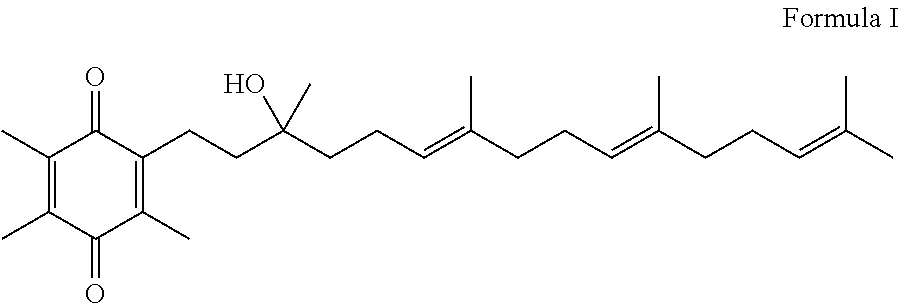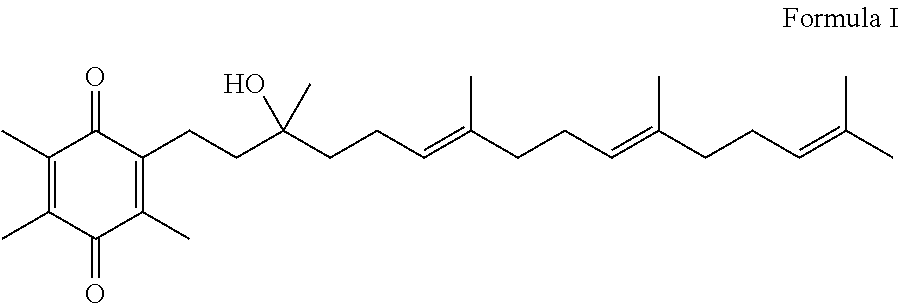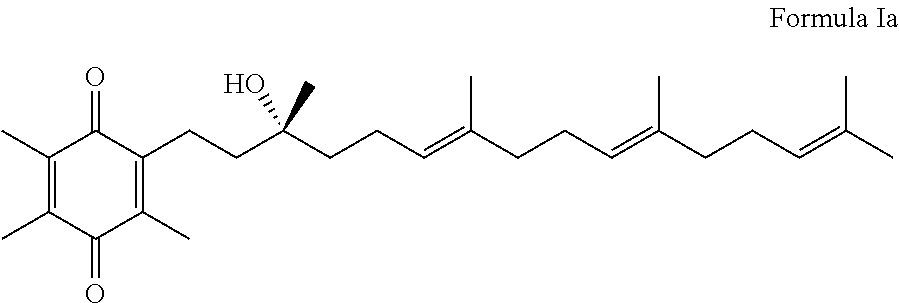Methods for selective oxidation of alpha tocotrienol in the presence of non-alpha tocotrienols
a technology of alpha tocotrienol and nonalpha tocotrienol, which is applied in the preparation of carbonyl compounds, muscular disorders, drug compositions, etc., can solve the problem of higher than desired concentration, and achieve the effect of reducing energy
- Summary
- Abstract
- Description
- Claims
- Application Information
AI Technical Summary
Benefits of technology
Problems solved by technology
Method used
Image
Examples
examples
[0084]500 mg alpha-tocotrienol were transferred to a 4 mL vial into which 1:3 ethanol:methyl tert-butyl ether (MTBE) (0.48:1.12 mL) was added. To this solution, ferric (III) chloride hexahydrate (1.27 g) in 0.48:0.79 (1:2) ethanol water was added in four portions, each portion providing 1 equivalent of ferric chloride per unit of alpha-tocotrienol, resulting in an overall metal salt oxidizing agent / alpha-tocotrienol ratio of 4:1. The first aliquot was added into the vial and stirred for approximately 30±5 minutes. The mixture was allowed to settle and the aqueous layer was removed to waste. Ferric chloride additions were carried out three more times for a total of four aliquots. After the last aqueous layer was removed to waste, the ethanol:TBME containing the resulting -alpha-tocotrienol quinone was washed with water four times and agitated for 10 minutes. The aqueous layer was removed to waste. The batch was sampled and analyzed by an in-process HPLC method.
[0085]The ethanol:MTBE ...
PUM
| Property | Measurement | Unit |
|---|---|---|
| polar | aaaaa | aaaaa |
| concentrations | aaaaa | aaaaa |
| purity | aaaaa | aaaaa |
Abstract
Description
Claims
Application Information
 Login to View More
Login to View More - R&D
- Intellectual Property
- Life Sciences
- Materials
- Tech Scout
- Unparalleled Data Quality
- Higher Quality Content
- 60% Fewer Hallucinations
Browse by: Latest US Patents, China's latest patents, Technical Efficacy Thesaurus, Application Domain, Technology Topic, Popular Technical Reports.
© 2025 PatSnap. All rights reserved.Legal|Privacy policy|Modern Slavery Act Transparency Statement|Sitemap|About US| Contact US: help@patsnap.com



